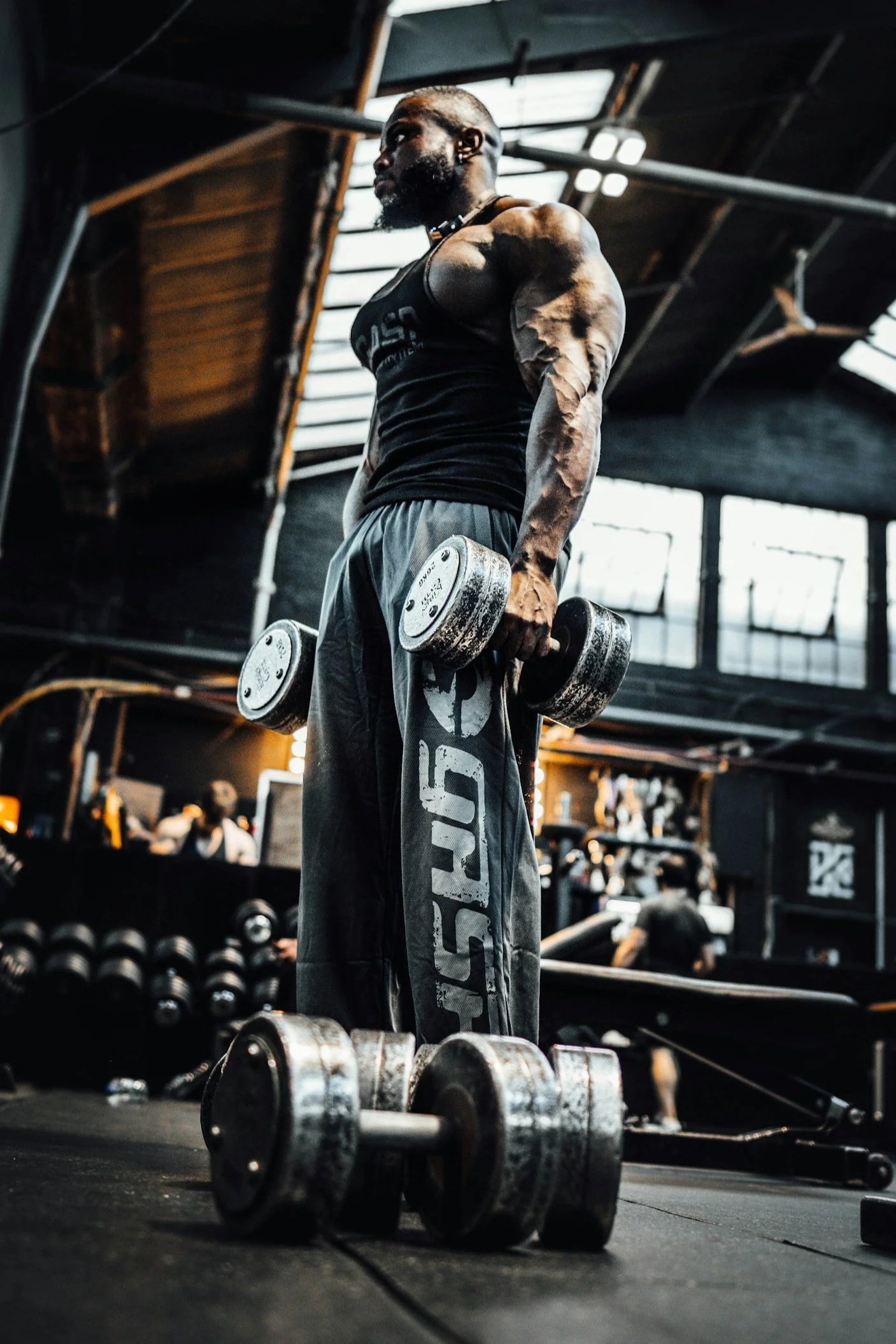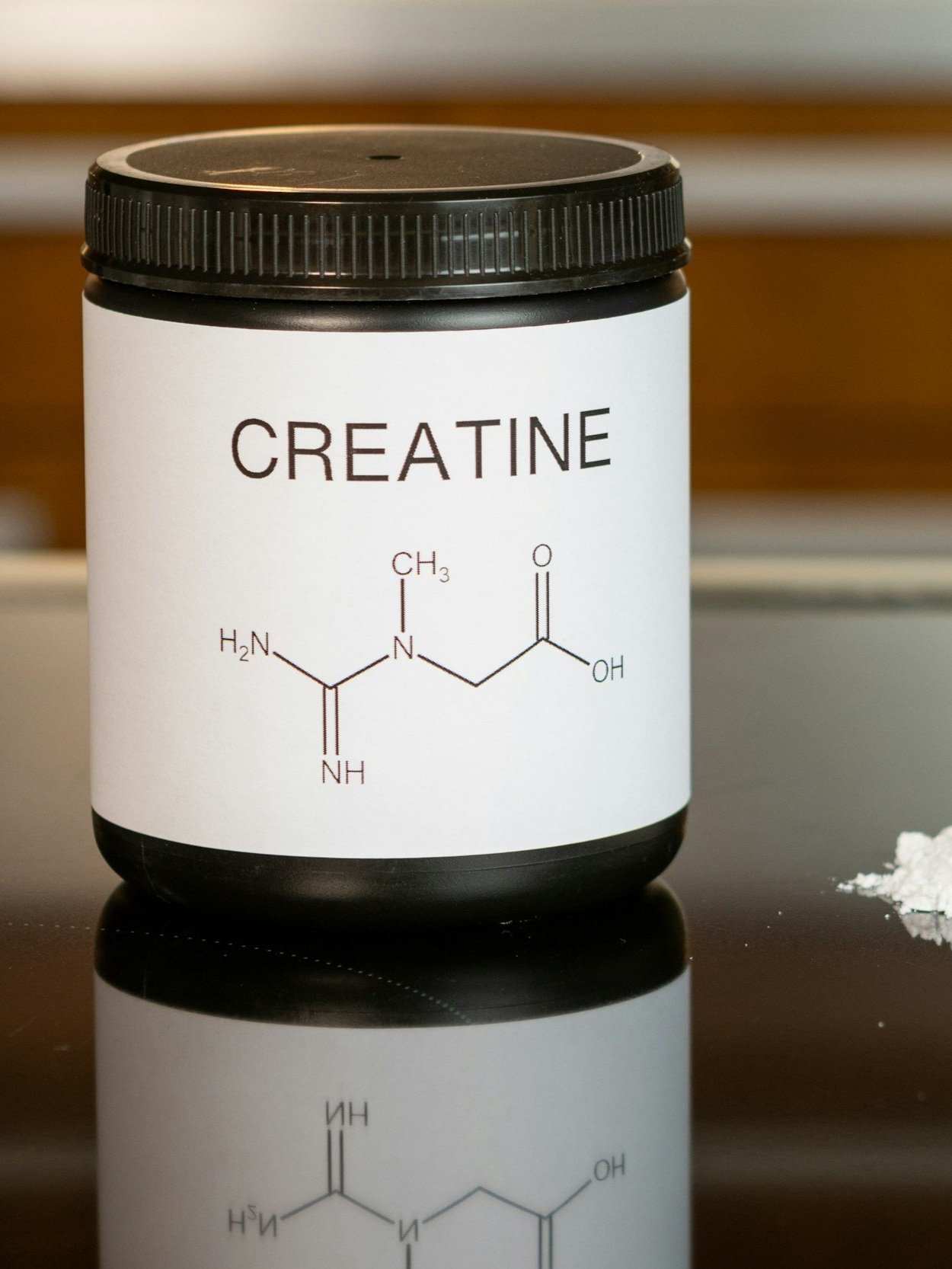Muscle Growth Supplements - What Works & What's Overhyped
The Truth About Muscle Growth Supplements
Building muscle isn’t just about lifting heavy weights—it’s about properly fueling your body for growth and recovery. Many gym-goers and athletes turn to muscle growth supplements to speed up progress, enhance performance, and improve workout recovery.
But with an overwhelming number of options, from protein powder to exotic herbal blends, how do you know what actually works? Are some supplements just expensive hype with little impact on muscle gain?
This article breaks down the most scientifically backed supplements, including the well-documented creatine benefits, and exposes the overhyped options that are more marketing than muscle-building.
How Muscle Growth Works – The Science Behind Hypertrophy
Before discussing supplements, it’s important to understand how muscle growth happens. Muscle hypertrophy, or the process of muscle fiber growth, occurs when muscles are placed under progressive overload—meaning heavier resistance or increased training intensity over time.
However, growth doesn’t happen in the gym. Instead, it occurs during recovery, when the body repairs tiny muscle tears created during resistance training. This repair process requires proper nutrition, primarily protein, amino acids, and key micronutrients.
Factors that drive muscle growth include:
Progressive overload – Lifting heavier weights or increasing intensity over time.
Protein intake – Providing the necessary building blocks for muscle repair.
Caloric surplus – Eating more calories than you burn to support growth.
Adequate rest and sleep – Allowing muscles time to recover and rebuild.
This is where muscle growth supplements can help. But not all are created equal—some deliver real benefits, while others are overhyped and ineffective.
Protein Powder – The Foundation of Muscle Growth
Protein is the most essential macronutrient for muscle repair and growth, making protein powder one of the most effective and widely used supplements for bodybuilders and athletes. Whole foods should always be the priority, but protein powders provide a quick, convenient, and efficient way to meet daily protein needs.
How Protein Powder Helps Muscle Growth
Provides amino acids needed for muscle repair and recovery.
Speeds up protein synthesis, the process responsible for muscle building.
Helps prevent muscle breakdown, especially for those training intensely.
Best Types of Protein Powder
Whey Protein – Fast-digesting, ideal for post-workout recovery.
Casein Protein – Slow-digesting, best for overnight muscle repair.
Plant-Based Protein – Good for those following a vegan or dairy-free diet.
How Much Protein Do You Need?
1.6 to 2.2 grams of protein per kg of body weight daily is recommended for muscle growth.
Pro Tip for Protein Absorption
Pair protein powder with healthy fats or complex carbs to slow digestion and enhance nutrient absorption.
Creatine – The Most Researched Strength Supplement
Among all muscle growth supplements, creatine is the most scientifically backed and proven to increase muscle size, strength, and workout recovery. It is naturally found in small amounts in foods like red meat, but supplementing dramatically enhances its benefits.
The Proven Benefits of Creatine
Boosts ATP production, providing muscles with more energy.
Improves strength and power, helping lift heavier weights.
Speeds up workout recovery, reducing muscle soreness and fatigue.
Best Type of Creatine
Creatine Monohydrate – The most effective and well-researched form.
How Much Creatine Should You Take?
5g per day is the standard dose—no need for a loading phase.
Pro Tip for Taking Creatine
Drink plenty of water when supplementing to maximize absorption and prevent dehydration.
Beta-Alanine – Delays Fatigue and Enhances Performance
While beta-alanine doesn’t directly build muscle, it delays muscle fatigue, allowing you to train harder and longer—which indirectly supports muscle growth.
How Beta-Alanine Helps Muscle Growth
Buffers lactic acid buildup, preventing muscle burn.
Enhances endurance, particularly in high-intensity workouts.
How Much Beta-Alanine Should You Take?
3–6g per day, taken in divided doses to reduce tingling sensations.
Pro Tip for Maximum Beta-Alanine Effect
For best results, take beta-alanine daily, not just on workout days.
Branched-Chain Amino Acids (BCAAs) – Useful or Overrated?
BCAAs, including leucine, isoleucine, and valine, are often marketed as essential for muscle recovery, but their effectiveness depends on your overall protein intake.
When BCAAs Are Beneficial
Helpful for fasted training, preventing muscle breakdown.
Supports muscle recovery for those who struggle to get enough protein.
When BCAAs Are Unnecessary
If you already consume enough protein from food and protein powder, BCAAs may not offer additional benefits.
How Much BCAAs Should You Take?
5–10g pre- or post-workout if you train fasted or need additional recovery support.
Pro Tip for Maximizing BCAAs
If you’re already consuming a high-protein diet, focus on whole foods instead of BCAA supplements.
L-Citrulline – The Blood Flow Booster
L-Citrulline is commonly found in pre-workout supplements due to its ability to increase nitric oxide production, improving blood flow, endurance, and muscle pump.
How L-Citrulline Helps Muscle Growth
Enhances circulation, delivering more oxygen and nutrients to muscles.
Delays muscle fatigue, improving endurance for longer workouts.
How Much L-Citrulline Should You Take?
6–8g before training is the optimal dose for enhanced performance.
Pro Tip for Pre-Workout Timing
Take L-Citrulline 30–45 minutes before a workout for maximum effect.
Overhyped Muscle Growth Supplements to Avoid
Not all supplements live up to their claims. Some are heavily marketed but provide little to no benefit for muscle growth. Below are the most overrated muscle-building supplements that aren’t worth your money.
Testosterone Boosters – Mostly Useless
Many testosterone booster supplements claim to increase muscle growth, but most are ineffective unless you have clinically low testosterone.
Common ingredients like tribulus terrestris and fenugreek lack scientific support.
Testosterone levels naturally fluctuate, but small increases don’t significantly affect muscle mass.
Better Alternative
Focus on strength training, sleep, and healthy fats to support natural testosterone production.
Pre-Workout Supplements – Overpriced Caffeine
Most pre-workouts promise explosive energy and better endurance, but their primary ingredient is caffeine—which you can get from coffee.
Many contain unnecessary fillers and artificial sweeteners.
Some formulas cause crashes and jitters.
Better Alternative
Drink black coffee or take L-Citrulline and Beta-Alanine for actual performance benefits.
Mass Gainers – Unnecessary Calories
Mass gainers are marketed as essential for bulking, but they’re often just high-calorie sugar bombs.
Many contain excessive sugar, leading to fat gain instead of muscle.
You can get the same calories from whole foods without artificial fillers.
Better Alternative
Make a homemade mass gainer with oats, peanut butter, bananas, and protein powder.
Maximizing Muscle Growth Naturally
Even the best muscle growth supplements won’t work if your training, diet, and recovery aren’t on point. Here’s how to naturally maximize muscle growth without relying too much on supplements.
1. Progressive Overload is Key
Lifting heavier weights over time forces muscles to adapt and grow.
Increase weight, reps, or training intensity each session.
Stick to compound movements like squats, deadlifts, and bench presses.
2. Protein Intake Matters More Than Supplements
No supplement replaces a proper diet.
Eat protein-rich foods like chicken, eggs, fish, and lean beef.
Spread protein intake evenly across all meals for better absorption.
3. Recovery is Just as Important as Training
Muscles grow when you rest, not in the gym.
Sleep at least 7–9 hours per night.
Give each muscle group time to recover before training again.
Conclusion – What Works & What Doesn’t
When it comes to muscle growth supplements, some deliver real benefits, while others are just marketing hype.
What Works? ✅
Protein Powder – Helps meet daily protein needs.
Creatine – Increases strength, endurance, and muscle recovery.
Beta-Alanine – Delays fatigue, allowing for harder training.
L-Citrulline – Enhances blood flow and endurance.
What’s Overhyped? ❌
Testosterone Boosters – Don’t work unless clinically deficient.
Pre-Workouts – Just overpriced caffeine.
Mass Gainers – Mostly sugar and unnecessary calories.
BCAAs – Unnecessary if protein intake is adequate.
Ultimately, the best muscle growth strategy is a proper diet, progressive training, and sufficient recovery. Supplements can help, but they should never replace the fundamentals of muscle-building.










